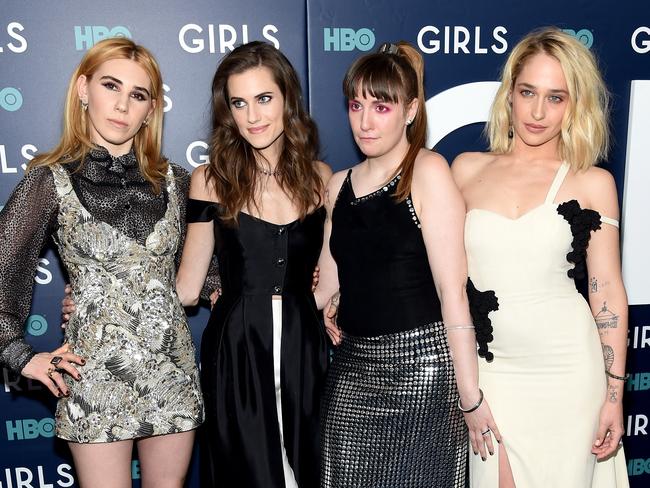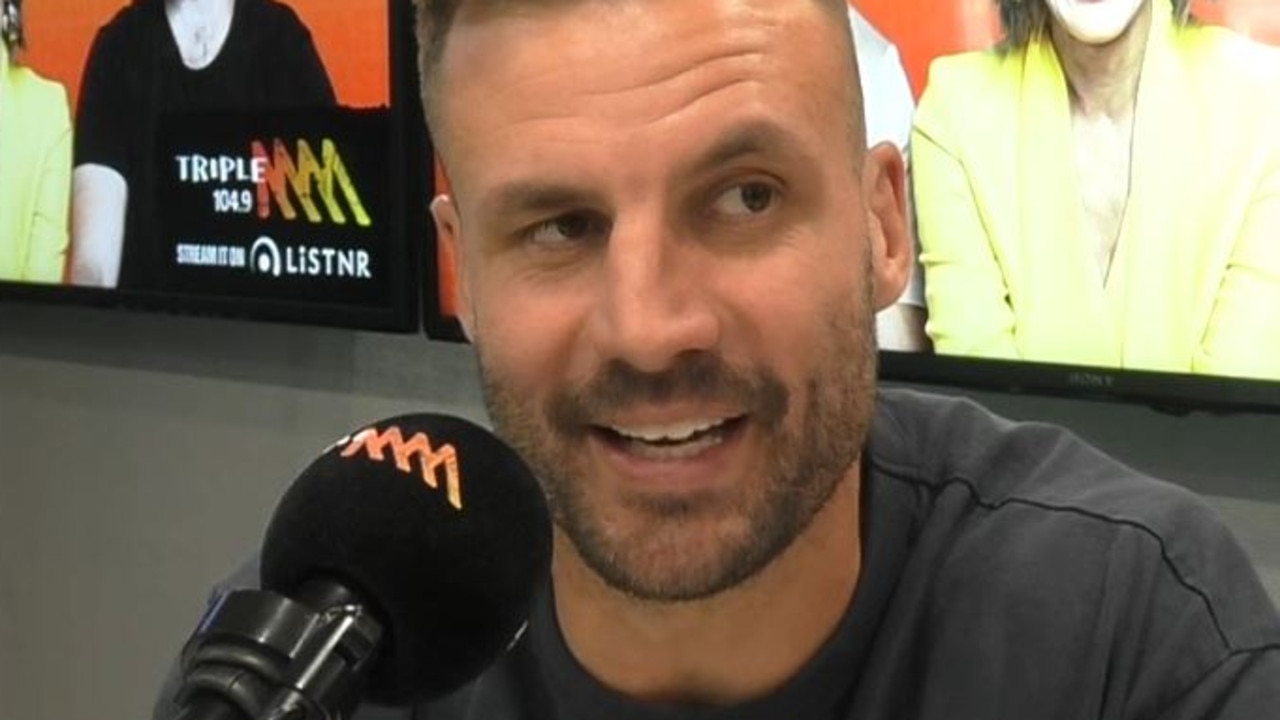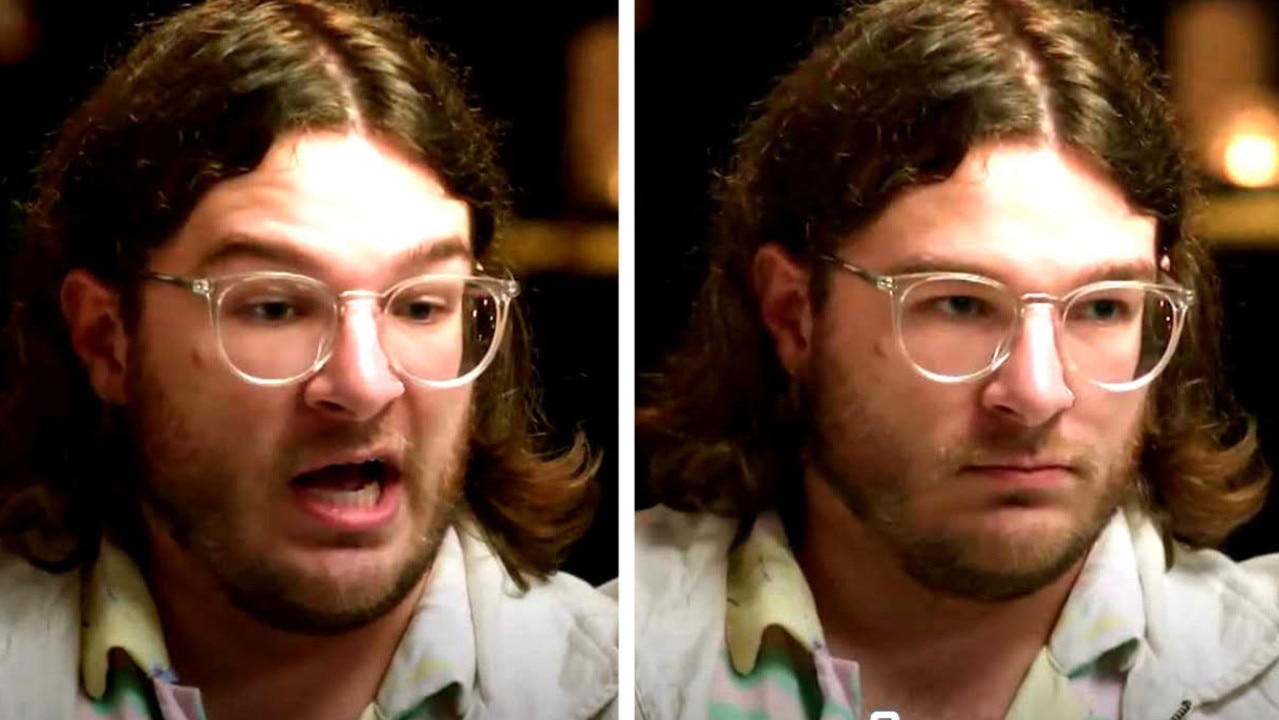Final goodbye? Lena Dunham on where we leave the Girls girls
AS THE groundbreaking HBO show edges towards its final days on the air, the stars of Girls tell news.com.au where we’ll leave TV’s four most polarising women.
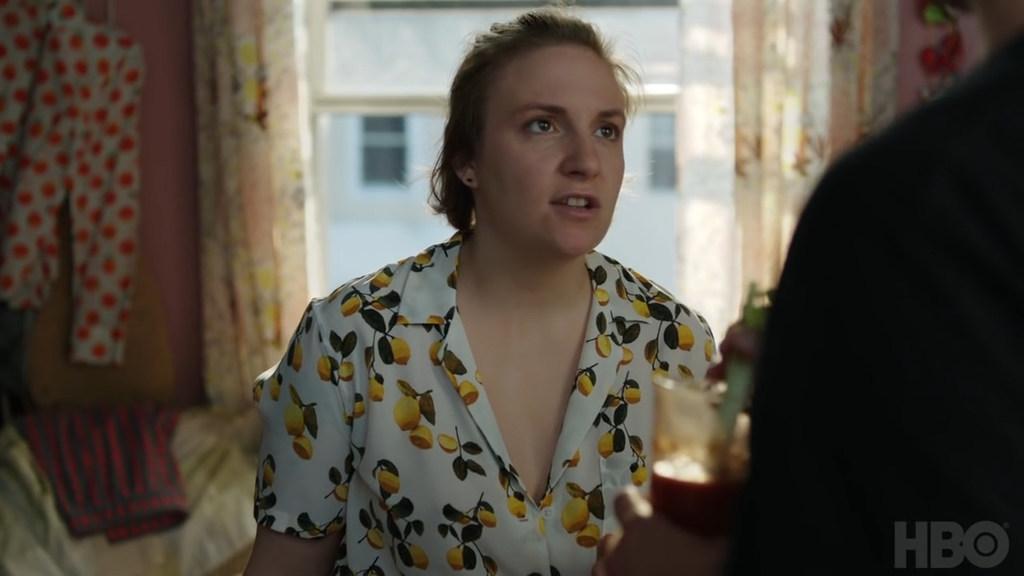
WRAPPING the final season after six years spent side-by-side — filming sex scenes, messy breakups, breakdowns, catfights, romance, heartbreak, weddings and divorce — the cast of Girls is understandably emotional.
As the groundbreaking HBO show edges towards its final days on the air, the stars and creators are preoccupied promoting Season 6, and savouring every last moment before they no longer have an excuse to be thrust into tiny spaces together — often partially naked — on a regular basis.
For creator, writer and star Lena Dunham, wrapping filming on Girls for the very last time late last year after “six years of blood, sweat, and tears” was one of the most difficult decisions she’s had to make.
Girls fans around the world bemoaned the news that the upcoming sixth season would be the last time their favourite self-indulgent New Yorkers returned to the small screen. Why now? Why not one, two more seasons?
But the 30-year-old actor, who stars as Hannah Horvath, admits it was her decision to pull the plug on the award-winning series and says she’s thrilled with the way they ended each of the characters’ stories — for now. (More on that later)
“I hope that viewers come away feeling like we’ve really honoured the characters that they’ve become attached to,” Dunham tells news.com.au. “That we’ve let the characters grow, that we haven’t done it in a way that isn’t realistic, haven’t given them too tidier an ending, and that they recognise that they have choices.”
With hype surrounding the final season of Girls mounting by the day, the show’s past controversies — including its lack of diversity, casual nudity, willingness to show explicit sex scenes, “too much” sex, and deeply conflicted, unlikable characters — are back in the spotlight. To which Dunham says, as always, ‘bring it on.’
“So much of the show was about exploring female friendship in a way that I hadn’t really seen on television before and exploring the way that even women who really love each other are capable of hurting each other,” she said. “And so much of the show is about that give and take.”
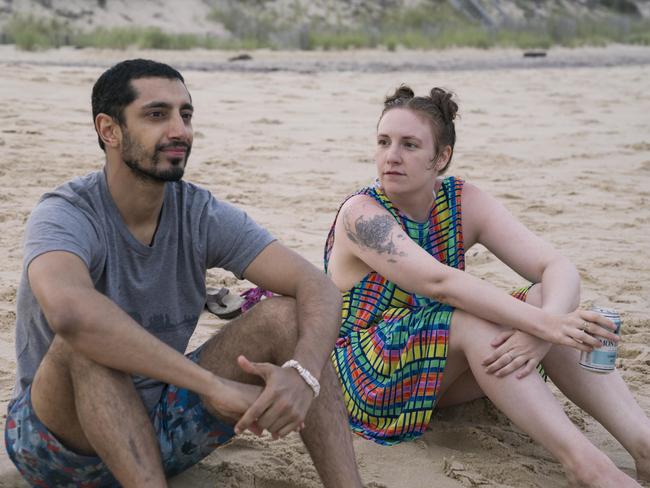
Producing, directing and starring in a series that has polarised critics since day one means she’s well and truly immune to the backlash by now. But Dunham says Girls was never meant to be political.
“I really didn’t think of Girls as a political show, I just thought of it just a show about people I knew — in many ways it was apolitical. What’s political about depicting life as you know it?
“But that’s before I really understood that to show women who are imperfect, who are complicated is in itself a political act,” she added.
Wherever there is hype, there will be hatred, and Dunham (along with co-creators Judd Apatow and Jenni Konner) has been coming to the defence of her headline-grabbing sex scenes since the show premiered in April 2012.
“It’s Girls so when we show sex, the sex is always going to feel real,” the Emmy and Golden Globe winner said. “To me, it was never about being salacious, it was never about pushing an agenda of nudity or sexuality. I think we can all agree they are some of the least sexual sex scenes on television, but they are about honesty.”
Showrunner Jenni Konner added: “It was not intended to be a feminist statement or a political show but I think it inherently is. I think just having a woman in all the roles that she [Dunham] was in is political, and her relationship to her body is political and reproductive rights are. All of those things are inherently in the show without it being didactic.”
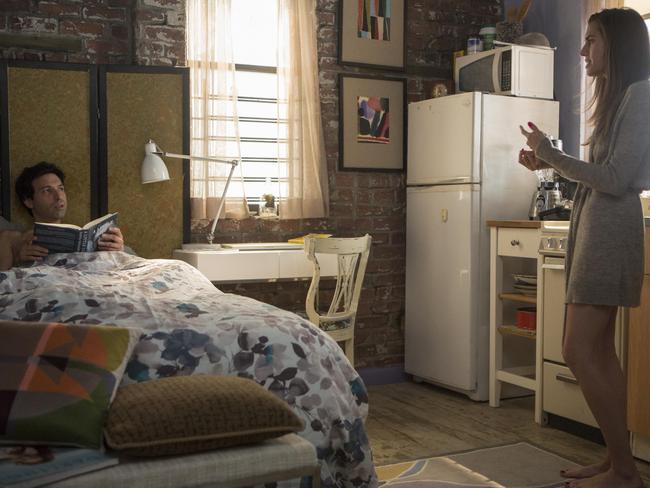
For Allison Williams, who stars as Marnie Michaels — a character both universally loved and loathed by fans — the topic of her sex scenes gets raised often. This is unsurprising, given Marnie has more sex scenes than any other Girls character. What IS surprising however, is that Williams actually ruled out being nude on screen from the moment she stepped on set.
“I said early on that I didn’t want to be naked,” she told news.com.au. “Part of making sure that Marnie doesn’t feel un-intimate in that way is making sure that we see her in very intimate situations even if she isn’t showing all of herself. You are still being shown a lot of vulnerability, even though I’m not showing all of myself.
“No one guesses that I’ve had the most sex scenes of everyone on the show, everyone thinks its Lena, even though people have ever seen my boobs.”
Well aware that she was lumped with playing the show’s “least likeable” character, Williams joked that no one ever wants to admit they’re “the Marnie” of their group. But she says there is plenty she will miss about the vaguely insufferable, narcissistic, farce of a woman she has tapped into and grown to love.
“I will miss playing someone who just follows her heart everywhere she goes,” Williams said. “There’s something so satisfying about that. Marnie has an idea, she thinks it might work, she executes it and there’s very little time lapse between those two things, there’s something so refreshing about that. She often follows the instincts that we all have that we don’t listen to because we know better, and that’s been really cathartic to live out.”
While Williams admits it’s too early to know what sort of legacy Girls will leave, she says her hope is that “it will be one of the first shows to radically refuse to show women in their best light only.
“I think the idea that we can all be air bushed and we can all be nipped and tucked to perfection can be very dangerous for women’s body image and for young girls … even when Marnie gets perfectly dressed up she makes an arse of herself and I think that's such a relief for young people to watch,” she said.
Konner added: “We hope the legacy of the show is that it puts more women to work in the creating, writing, directing areas and networks see that this can be a money-making proposition and give more jobs to women in this arena.”

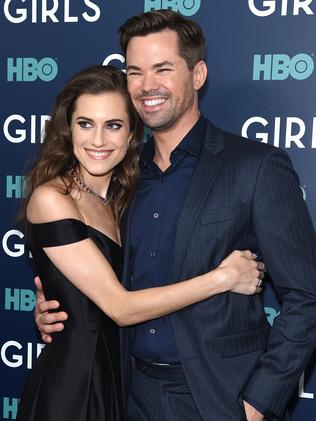
Dunham’s millennial comedy chronicling the lives of four 20-something women in New York has always pushed the boundaries. Granted, it’s not everybody’s cup of tea. But Dunham, who was just 23 years old when she sold Girls to HBO with a page-and-a-half-long pitch, never professed to be “the voice of my generation,” as her character boldly declares in the opening scene of season one.
What she, Judd Apatow and Jenni Konner have done is kickstart a cultural conversation, honing in on issues that were once deemed too tricky or too uncomfortable for television. And for that, she remains unapologetic.
“I think it’s really important to remember that we live in such an incredibly diverse generation. No one voice, no one white female voice can speak for the entirety of a generation,” Dunham explained.
“What we can do is try to elevate as many voices as we can to create a kaleidoscope that gives people a sense of what our needs and passions and desires are.”
So, will this be the absolute last time fans farewell the Girls girls? Apparently not. Dunham confirmed last week that a big-screen adaptation was being seriously considered, eventually.
Fans can expect an unpredictable final run of Girls when Season 6 premieres. The final season will air Wednesdays at 8.30pm from Feb. 15 on Showcase.
